Ajax | Greek Hero

Ájax (Classical Greek: Αἴας; Romaniz.: Aias) is one of the characters in Greek mythology, a participant in the Trojan War. He is often referred to as Ajax the Great, to distinguish him from the namesake Ajax, son of Ileu. According to Homer, in the Iliad, Ajax was "the bravest and most beautiful of all the warrior Dânaos, if we except, only, the flawless hero, Achilles."
Family and birth
Ajax was the son of Telamon and Peribeia; his father was the son of Aeacus and Endeis, and his mother was the daughter of Alcatos, son of Pelope.
Telamon and his brother Peleus arranged to kill his half-brother Phocus, son of Aeacus and Psâmate, daughter of Nereus. By lot, Telamon struck the fatal blow, and Peleus hid the body; when the murder was discovered, the two fled from Aegina.
According to Ferecides of Leros, Telamon was not a brother, but a friend, of Peleus, being the son of Acteus and Glauce, daughter of Cicreu, king of Salamina.
Telamon fled to Salamina, to the court of Cicreu, son of Poseidon and Salamina, daughter of Asopos; when Cicreu died childless, the kingdom passed to Telamon.
The son of Telamon and Peribeia was given the name Ajax because Heracles prayed that they would have a male child, at which time an eagle appeared (aietos). Telamon also had a son with Hesione, daughter of Laomedon, whom he received as booty from the war that Heracles waged against Troy; Hesione's son was Theucro.
Legend
Ájax was Telamon's son (king of Salamina) and, along with Diomedes, was considered one of the strongest and most skillful Greek warriors after Achilles. Teucro's half-brother, he was practically unbeatable and thanks to him the Greeks won several victories against the Trojans.
Beside Ájax, fought another Ájax, the Locrian. When both fought together only the gods could resist their onslaught. Ájax was also known as Ájax of Salamina.
Homer described Ájax as a rampart, much taller than the other men, with a shield in the shape of a tower and a long spear. He used colossal stones to fight his opponents. When Achilles withdrew from the fight, Ajax faced Hector in single combat.
The two heroes fought all day and only Hector suffered minor injuries. After Achilles' death, Ajax disputed with Odysseus over the dead hero's armor. Odysseus proved to be a better orator and won the prize.
In a fit of madness, he cut the beasts of the Greeks' flocks, certain that he was killing his adversaries. When he recognized his mistake, he committed suicide. The madness of Ajax inspired Sophocles to write the tragedy Angry Ajax (450 B.C.).
